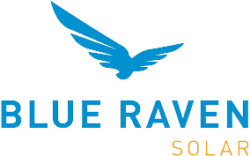Benefits of Solar Energy
Solar energy offers multiple advantages that will enhance your home for years to come.
- Reduced carbon footprint: The sun is the universe's most abundant clean energy source, meaning you can minimize or conquer your home's dependence on fossil fuels.
- Reduced energy costs: Producing some or all of your own energy will save you money on your electric bills long-term. Plus, some states provide net metering programs that allow you to sell your extra energy back to the grid, generating additional credits toward your energy bill.
- Better energy independence: Photovoltaic solar panel systems with battery backups and storage systems operate through power outages and emergencies, and you won't have to depend on the electrical grid for your safety and well-being.
What Solar Incentives Are Available to Pembroke Pines Homeowners?
The state of Florida offers a number of solar incentives to help lower your solar system costs. Here is a breakdown of eligible solar programs where you live.
Incentive Type: Sales Tax Incentive
Incentive Amount:
All
Incentive Type: Property Tax Incentive
Incentive Amount:
Residential: 100% of the added value
Non-Residential: 80% of the added value
Incentive Type: PACE Financing
Website: floridapace.govIncentive Amount:
Determined locally
Incentive Type: Loan Program
Website: lakelandelectric.comIncentive Amount:
$5,000
Incentive Type: Personal Tax Credit
Website: ecowatch.comIncentive Amount:
30% federal tax credit for systems placed in service after 12/31/2021 and before 01/01/2033. Good for: solar water heat, solar photovoltaics, biomass, geothermal heat pumps, wind (small), fuel cells using renewable fuels.
How To Choose the Best Solar Company in Pembroke Pines
The purchase price and efficiency of solar panels often hinge on the solar company that installed them. Consider each of these elements in your business search.
Licensing and Training
Once an electrical professional in Florida has four years of field experience, including one year as an apprentice, they can take two tests to earn a CV license with the Florida Construction Industry Licensing Board. Florida also allows electrical contractors to install solar panels, but they may need to subcontract some tasks to a licensed roofer. Check a company's website for private accreditations from the North American Board of Certified Energy Practitioners (NABCEP), one of the solar industry's most trusted trade groups. Its program includes certifications for both solar photovoltaic and water heating installers.
Cost of Solar Panels in Pembroke Pines
Different solar panel types look and perform differently. Monocrystalline panels offer the best energy production but cost more than other options and generally have the highest quality. Polycrystalline panels produce less power, but start at a more budget-friendly price point. Thin-film panels work well for small projects like RVs and sheds, but they're not ideal for larger installations due to their low performance.
Additional accessories, such as electric vehicle (EV) chargers and battery storage, will raise your overall installation costs. However, they might make your solar system more efficient and convenient to use. Not every solar company provides these optional components, so look for a company that sells them if it's important for you.
Most Pembroke Pines homeowners choose solar systems rated for five kilowatts (kW) of electrical capacity. These systems run about $16,050 to set up, considering both parts and installation. You can find more specific solar cost information in the table.
| Solar Panel Cost | Average Cost |
|---|---|
| Solar Monocrystalline | $1,095 |
| Solar Polycrystalline | $854 |
| Thin-Film | $499 |
| Solar Battery | $701 |
| Solar Home EV Charger | $2,629 |
Financing Solar Energy in Pembroke Pines
There are a plethora of ways to pay for a new solar system, and the right one will lower your costs. A few of the most common options include cash payments, loans, leases, and power purchase agreements (PPAs). Though it requires a large up-front payment, cash is the most cost-effective choice because it qualifies you for solar incentives and doesn't accrue interest. Solar loans are the next best option. As with a car or home loan, you'll pay a monthly rate towards system ownership, including interest. You can still apply for money-saving solar incentives, and depending on your lender, you could put as little as $0 down. Solar leases involve paying a set monthly rate to use rooftop panels. A PPA (Power Purchase Agreement) lets you pay a monthly rate based only on the energy you use, as with an electric bill. We usually don’t recommend these two choices because you won't own the solar system and are disqualified from using solar incentives. Ask each provider you're evaluating about the payment options it offers. A representative can help you determine the most suitable option for your budget.
The table below lists the average payback periods for different capacities of solar systems in Pembroke Pines.
You can claim a 26% federal solar tax credit from the IRS for new residential solar systems purchased before 2032. Additionally, local governments and utilities may have their own financing plans and rebates that could reduce your total cost even more.
| Solar System Capacity | Estimated Payback period |
|---|---|
| 1 kW | 1.7 years |
| 2 kW | 3.5 years |
| 5 kW | 8.6 years |
| 10 kW | 17.3 years |
Ready to Get a Quote on Your Solar Project?
Please enter a valid 5-digit zip code!
Frequently Asked Questions About Solar in Pembroke Pines
How much money could I save by going solar in Pembroke Pines?
Is solar energy widely available in Pembroke Pines?
Should I anticipate a property value increase after switching to solar energy?
Could I still use solar power if I live in a wooded, dark, or rainy area?
Is solar panel installation a fast job?
How long does it take to pay back a solar loan in Pembroke Pines?
How does "net metering" work, and do I need to participate?
Some states or utilities oblige you to enroll in net metering when installing your solar system, while others give you a choice. Either way, once you participate, you'll earn a bill credit or check for your excess generation at a wholesale or retail rate.
What's the difference between a PPA and traditional financing?
You might look into a PPA if you don’t want to be responsible for maintaining your panels and don’t want to invest in a system, but keep in mind you won’t be paying toward ownership or be able to access any solar financial incentives. Many solar experts don’t recommend PPAs. Our guide covers other payment options above.
To share feedback or ask a question about this article, send a note to our Reviews Team at reviewsteam@thisoldhousereviews.com.



















